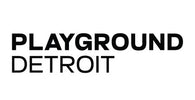In 2016, Detroit was announced the first US city designated as a UNESCO City of Design. Their website elaborates that “Detroit, a metropolis of more than 6 million inhabitants, is considered a hub for industrial design and the beating heart of creative industries in the state of Michigan (United States of America). In the light of its industrial past, Detroit has built itself as a cradle of American modernist design and as a global center for prolific designers, including Eames, Knoll, Saarinen and Yamasaki. The industry of design has been a driver for the city’s urban regeneration and represents today a significant lever for employment and an economic engine by employing more than 45,000 people and generating $US 2.5 billion in wages.
Detroit is also home to the Detroit Design Festival, the largest festival of design dedicated to freelance professionals in North America, showcasing 70 workshops and exhibitions annually attended by 500 designers worldwide. To further nurture the vibrant sector of industrial design, the Detroit Creative Corridor Center (DC3) was opened in 2010 by the municipality and also is responsible for the Design Festival.
Dc3 has served ever since as the city’s advocacy organization by providing leadership, resources, data and analytics necessary to sustain the economic output and social impact of the city’s global creative economy. The main objective of DC3 is to give international recognition to Detroit as a global center of design, innovation and creativity. DC3 has been tasked to ask Detroit residents about what the UNESCO City of Design designation will mean for them.
Detroit’s residents are at the center of their Visioning Process as the city imagines a more creative, equitable and sustainable future for our city. In June, DC3 held two separate hands-on workshops that involved residents in shaping the vision, values and strategy for the Detroit City of Design initiative.
In their first workshop facilitated by The Work Department, residents talked about what a good life in Detroit means to them. They discussed what they are proud of, what they struggle with, and what their hopes and fears are for the future.
In a second workshop facilitated by Urbane Development, residents who may not be connected to the creative economy talked about their experiences looking for work or starting a business, their perception about opportunities in the creative sectors, and the barriers that may prevent them from attaining economic opportunities.
These workshops both allowed residents to express a strong desire to unify different “Detroits,” since ‘we are all more alike than different.’ These residents are involved in their neighborhoods and communities, and want to be involved with planning the future of our city. The opportunity we have through this process is to better understand how design can help grow more shared spaces, common language and create accessible economic opportunities.
Eight Reasons Detroit is a City of Design:
- History
- Environment
- Research & Innovation
- Industry
- Job Growth
- Educational Institutions
- Talent
- Cultural Change
- Design Scene Today
- Cultural Institutions
- Future Opportunities
Things people are saying about ‘Design + Detroit’:
- In June, Urbane Development interviewed 35 community stakeholders and industry experts to better understand Detroit’s creative sectors.
- Detroit City of Design provides an opportunity to emphasize its design narrative, which is rich in history and diversity, within the context of specific outcomes, including jobs, increased fiscal impact, more local firms and an investment in local talent.
- Neighborhoods are disconnected — both geographically and culturally — making it challenging for Detroit residents to access high-paying jobs, schools and recreational amenities.
- Investment in Detroit neighborhoods is also lagging, making it difficult to attract and retain businesses that can help revitalize commercial corridors.
- Detroit has space, but it needs adequate infrastructure to support emerging and established talent — from better transportation to more manufacturing hubs that support small-scale entrepreneurs.
- There is an opportunity for our community to pioneer how we re-think about arts education and education at large given the outstanding number of academic institutions in Detroit.
- Detroit needs to create an economy that residents can participate in. Detroit City of Design is in a unique position to demonstrate ways to develop a more equitable and sustainable city, but also offer attainable economic opportunities to residents.
- Urbane Development has completed a 30+ page analysis or articles and research papers highlighting the current and potential role of Detroit’s creative economy and the impact of trends in technology, innovation, diversity, mobility and the built environment.
Additional findings:
In 2013, UNESCO reported the creative economy is one of the most rapidly growing sectors of the world economy and a highly transformative one in terms of income generation, job creation and export earnings. Design is a major employer and thus a major economic driver.
In Detroit, the creative sectors are driving economic growth. Creative occupations have proven to be more resilient and to command a higher median income than the overall workforce.
Detroit can learn from other cities that are protecting themselves from the risks of increasing automation by investing in relatively skilled industries, including professional services and creative disciplines.
Stay informed on more news from the Detroit Creative Corridor Center and the UNESCO Designation HERE.
Photo Credit(s): Detroit Creative Corridor Center,
Featured: Design and making at the Redbull Creation, a 72 hour creative competition, during the 2015 Detroit Design Festival
Wasserman Projects installation, during the 2015 Detroit Design Festival
The post WHAT DOES UNESCO CITY OF DESIGN INITIATIVE MEAN FOR DETROITERS? appeared first on PLAYGROUND DETROIT.

